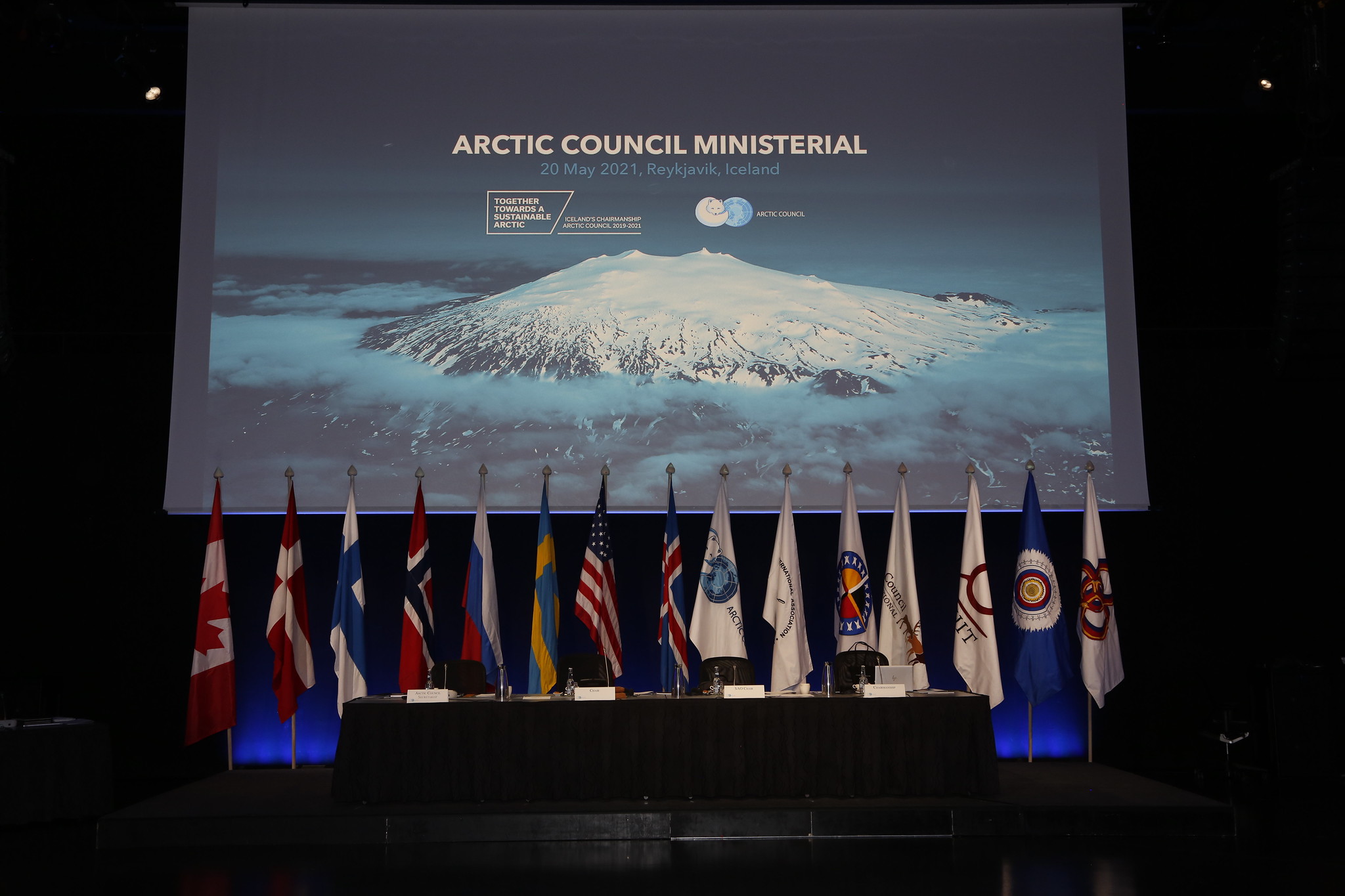Arctic Council nations are ‘pausing’ work after Russia’s invasion of Ukraine
In a historic move, all seven other nations of the Arctic Council will temporarily halt collaboration with Russia at the Arctic Council.

Seven of eight Arctic nations said Wednesday they are “pausing” the work of the Arctic Council, the top intergovernmental forum in the region, in response to Russia’s invasion of Ukraine.
Russia is about halfway through its two-year tenure as the body’s rotating chair, which began in May 2021.
In a joint statement, the seven other nations condemned Russia’s “unprovoked invasion” of Ukraine and noted “the grave impediments to international cooperation, including in the Arctic, that Russia’s actions have caused.”
All meetings of the council and its working groups will be paused temporarily and indefinitely. None of the seven countries’ officials will travel to Russia for meetings in light of Russia’s “flagrant violation” of international law and territorial sovereignty, the statement said.
“This is the Arctic seven speaking with one voice,” said Troy Bouffard, director of the Center of Arctic Security and Resilience at the University of Alaska Fairbanks and a member of the Emergency Prevention, Preparedness and Response working group’s steering committee. “We just simply can’t keep up our current work. Cooperation takes a hit.”
[Russia’s invasion of Ukraine will have spillover effects in the Arctic]
The next meeting of senior Arctic officials was planned for Arkhangelsk in late May. Non-Russian officials will also stay away from a key international conference, the “Arctic: Territory of Dialogue” forum in St. Petersburg scheduled for mid-April.
The seven nations — Canada, the Kingdom of Denmark, Finland, Iceland, Norway, Sweden, and the United States — and the council’s working groups are considering ways to continue vital work in the region given these circumstances, the statement said.
The eight Arctic nations’ cooperation, even in times of disagreement or conflict elsewhere on the globe, is “over for now,” said Sherri Goodman, former U.S. deputy undersecretary of defense and a senior fellow at the Wilson Center’s Polar Institute.
The working groups may find ways to continue this work, but Russia’s chairmanship could make it more complicated.
And during the pause, “there’s no forum for dialogue and discussion with Russia, the largest Arctic country, on matters that affect the people, the ecology, the geography of the Arctic,” Goodman said.
In the longer term, the fallout of Russia’s actions may increases the risk of miscommunication and miscalculation in the North, at a time where Arctic activities are increasing, she said.
The halt is temporary, Bouffard said.
“They used the word ‘pause’ only — not suspend, not discontinue, or anything like that.”
But any delay “hurts,” he said, because “there’s a million things we’re working on that are super important.”
“All of that is vital, and all of that does not need to be interrupted,” Bouffard said.
It’s unclear whether dialogue with Russian Arctic counterparts will be cut off entirely.
“What happens when you don’t have that ability to have dialogue, to work and deal with issues?” Bouffard asked.
Six Indigenous organizations are permanent participants to the Council, and four of the six have Russian members — which will likely create difficulties carrying out collaborative projects.
“We are monitoring the situation on a day-to-day basis,” Monica Ell-Kanayuk, president of the Inuit Circumpolar Council Canada, told Nunatsiaq News on Tuesday.
A recent statement from the Russian Association of Indigenous Peoples of the North, one of the Indigenous permanent participants, expressed support for Putin’s actions. But Bouffard believes “it’s a scripted Kremlin narrative” that the group was forced to issue.
After the 2014 annexation of Crimea, Russia was excluded from Arctic forums on security, including the Arctic Forces Security Roundtable. (The Arctic Council itself expressly does not address military security issues.)
Prior to this invasion, there was talk of re-engaging the security dialogue with Russia – “now, that’s impossible,” Goodman said.
Putin’s unpredictability and his order to put nuclear forces on high alert increases the risk for conflict in the Arctic as well, Goodman said.
Another unexpected development from the invasion has been Finland’s increased interest in considering NATO membership, which a majority of Finns now support for the first time.
“It is too early to tell more about the long-term consequences and how this will affect the Norwegian leadership of the Arctic Council,” Morten Høglund, senior Arctic official for Norway, told the Barents Observer.
Norway will assume the body’s two-year rotating chair in spring 2023.